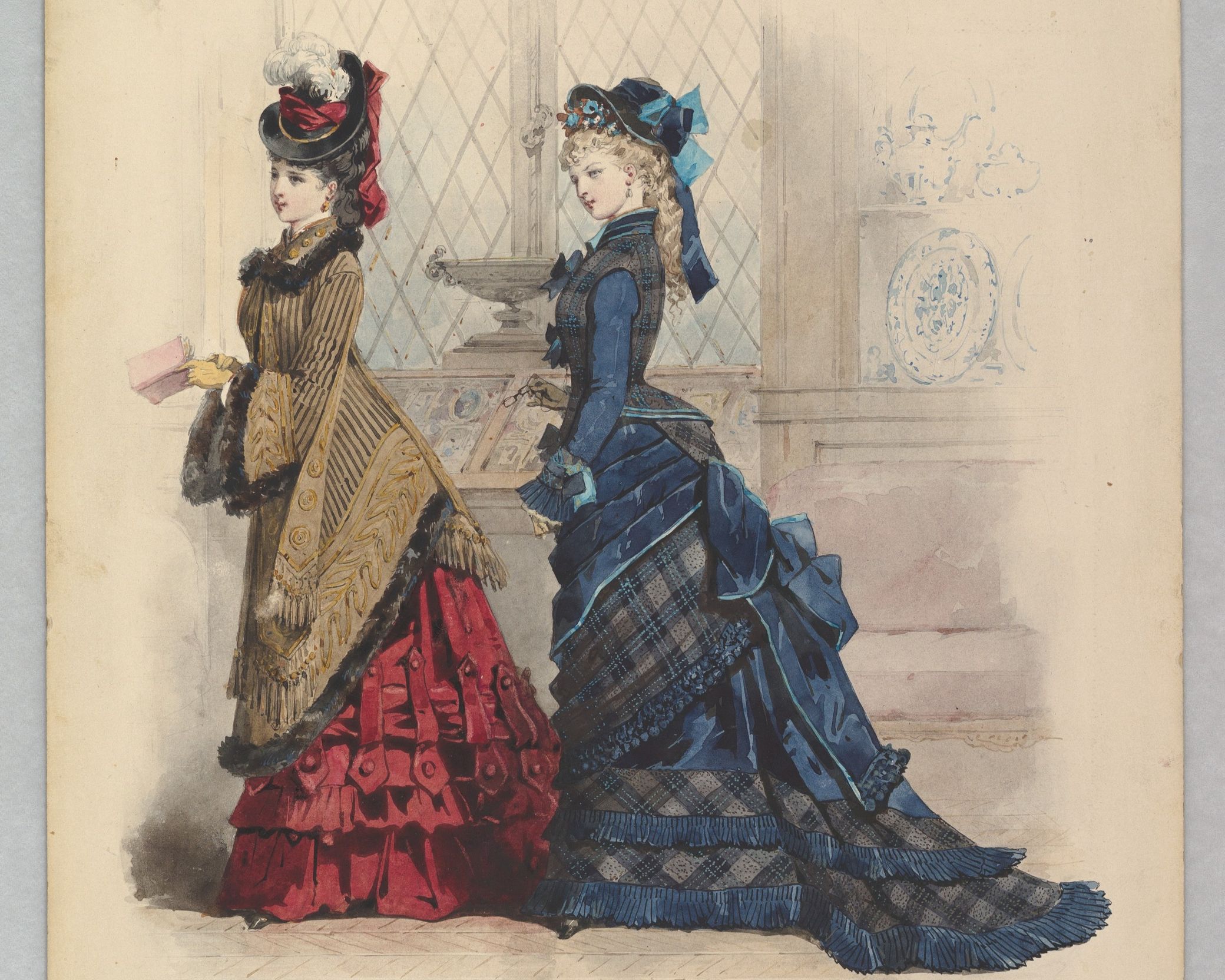
Two Women in Day Dresses, by Jules David, 1875. The Metropolitan Museum of Art, Elisha Whittelsey Collection, The Elisha Whittelsey Fund, 1953.
• Isabel Wilkerson on Juneteenth: “This is not black history. This is American history.” (Morning Edition)
Further reading: FREEDOM (Spring 2023)
• On writing male friendship. (Literary Hub)
Further reading: Extracts, a new series on our Substack; this week from FRIENDSHIP (Spring 2021)
• “Someone living on a narrowboat in the West Midlands might see themselves very differently than someone living on a Thames barge, but the commonalities in how they have been historically treated makes it useful to examine canal and river boat life together.” (History News Network)
Further reading: WATER (Summer 2018)
• The challenge of translating poetry and poetic style: “I’ve been gazing at this stuff for twenty years, this whole time trying to figure out how one could follow the spirit of the ghazal form without getting shipwrecked by the IKEA instructions, so to speak.” (Paris Review Daily)
Further reading: The World in Time, Ep. 4: Interview with Nathan Brown, translator of Verso’s new dual-language edition of Charles Baudelaire’s The Flowers of Evil
• “The Design Genius Who Gave American Women Pockets.” (New York Times)
Further reading: FASHION (Fall 2015)
• How FDR created the warfare state. (The New Republic)
Further reading: The World in Time, Ep. 4: Interview with Kira Brunner Don on the making of our first issue, STATES OF WAR (Winter 2008)
• On the groundnut’s journey into Black foodways. (Eater)
Further reading: FOOD (Summer 2011)
• Getting by in the Orleans Parish Prison. (Stranger’s Guide)
• “Liberal theory (especially in its economistic version) assumes self-interested conduct and seeks to direct it to common interests. Contrariwise, republican theory extols Herculean public-spiritedness, or virtue, and seeks to empower the virtuous. The missing middle is the human capacity for loyalty, or faithfulness, to specific purposes, which pervades the long history of corporations. As a self-conscious mode of action, it began in the corporate bodies of the medieval Church—such as monasteries and confraternities and chantries—which were oriented to godly purposes rather than temporal ones. From there, it spread to charities, universities, and other civil society corporations. And ultimately it made its way into the early business corporations, each of which had to declare in its charter the purpose it was serving, which officers might swear to faithfully serve. Stewardship enterprise carries on this tradition within business.” (The Hedgehog Review)
• This week in obituaries: In memory of Lewis H. Lapham, by Kira Brunner Don, Curtis White, Elias Altman, Kelly Burdick, Ben Metcalf, and Donovan Hohn. Also: Bill Moyers, Mick Ralphs, Pat Williams, Daniel Kleppner, Nathan Silver, Violeta Chamorro, Rod Nordland, Bobby Sherman, Lalo Schifrin, Lynn Hamilton, Marcia Resnick, Anne Burrell, Léon Krier, Gailard Sartain, Mortimer Matz, Carolyn McCarthy, Jane Stanton Hitchcock, William Cran, Murshid Nawwaf Hamayel, Mohammed Qaher al-Naji and Lutfi Sabri Bearat, and Benjamin Kelly and James Maldonado.